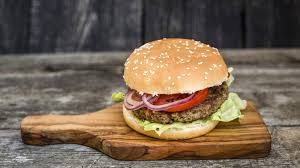
Burgers — they taste great with ketchup, mayo, lettuce, tomato, and rat DNA. A new study by Clear Labs came up with some interesting/revolting results. Of the 258 burgers sampled, four had some unusual ingredients. Three of them contained rat DNA, and one even had a little bit of human DNA, either from skin, fingernail or hair.
Still, the researchers aren’t totally concerned about the results. While not particularly palatable, none of these things are particularly harmful for human health. The human skin appears to have been mixed in there by accident, and not by any devious cannibalistic plan on the part of manufacturers.
“It’s not surprising to find some rat or human DNA in foods. When there is a food handler involved you’re likely to find some form of human DNA,” Dr. Michael Doyle, Director of the Center for Food Safety, Department of Food Science & Technology, University of Georgia said in a statement.
“The FDA has set allowable limits for rat pellets in some food ingredients such as wheat because it’s impossible to remove all traces of rat DNA. It sounds gross, but you have to put that in perspective. It’s more of an aesthetic concern than one relevant to human health.”

There are other parts of the study that were more disconcerting. Beef and pork were discovered in burgers that didn’t list them as ingredients. Multiple vegetarian burgers weren’t vegetarian at all. Close to 16 percent of vegetarian burgers were missing ingredients, including a black bean burger that had no black beans at all.
Fast-food burgers were surprisingly hygienic, but struggled in other areas, and were “especially egregious in misrepresenting caloric values.” Thirty-eight of the 47 burgers sampled had more calories than advertised.
The study itself was not peer-reviewed, but was instead produced by a commercial lab. To learn more fun and mildly upsetting facts, check out the full study here.